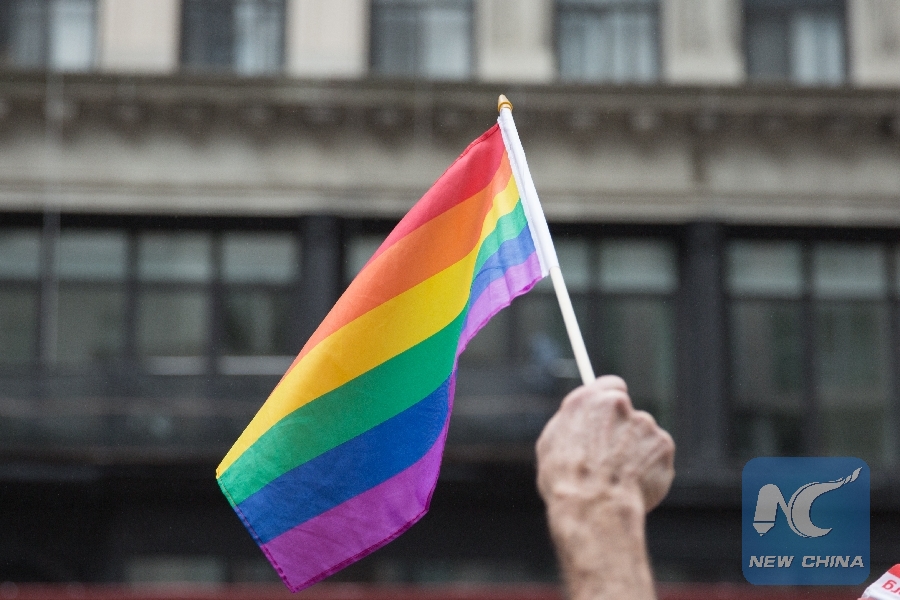
File Photo: A man waves a rainbow flag during the annual LGBT Pride Parade in Manhattan, New York, June 28, 2015. (Xinhua/Li Muzi)
NEW YORK, Nov. 19 (Xinhua) -- U.S. adults who identify as lesbian, gay or bisexual (LGB) are more likely to misuse opioids compared with those who identify as heterosexual in the United States, a new study reveals.
The research, conducted by New York University's Langone Medical Center and published on Monday in the American Journal of Preventive Medicine's website, said that 5 percent of respondents who identify as heterosexual in the United States have misused opioids in a one-year period, while the number surges to 9 percent for those who identify as gay or lesbian, and 12 percent for bisexual individuals.
In addition, female individuals identifying as bisexual are at a higher risk among the LGB groups as 14 percent of them reported opioids misuse.
As the first of its kind to examine sexual orientation differences in opioid misuse among U.S. adults, the study is based on data from over 42,000 U.S. adults involved in the 2015 National Survey on Drug Use and Health (NSDUH), in which the individuals' sexual identity, sexual attraction and any misuse of opioids were reported. Misusing include overdose, using without a prescription, or using against a doctor's recommendation.
The conclusion of the study accords with the "minority stress" model which postulates that individuals of minority groups tend to suffer greater stress because of "personal and vicarious experiences of stigma and discrimination," which may "predispose individuals to increased rates of maladaptive coping behaviors, including substance use."
Researchers suggest that more education should be introduced to the LGB community to address the issue. "Primary care providers, educators, and even parents should consider sexual orientation when assessing those at risk of opioid misuse," says Dustin T. Duncan, lead researcher of the study.
According to the Centers for Disease Control and Prevention, opioids are involved in more overdose deaths than any other drugs in the United States in recent years. President Donald Trump declared the opioids epidemic a public health emergency in 2017, and unleashed a new batch of policies tackling the issue in March, 2018 including tougher punishment, more research and fewer prescriptions.

